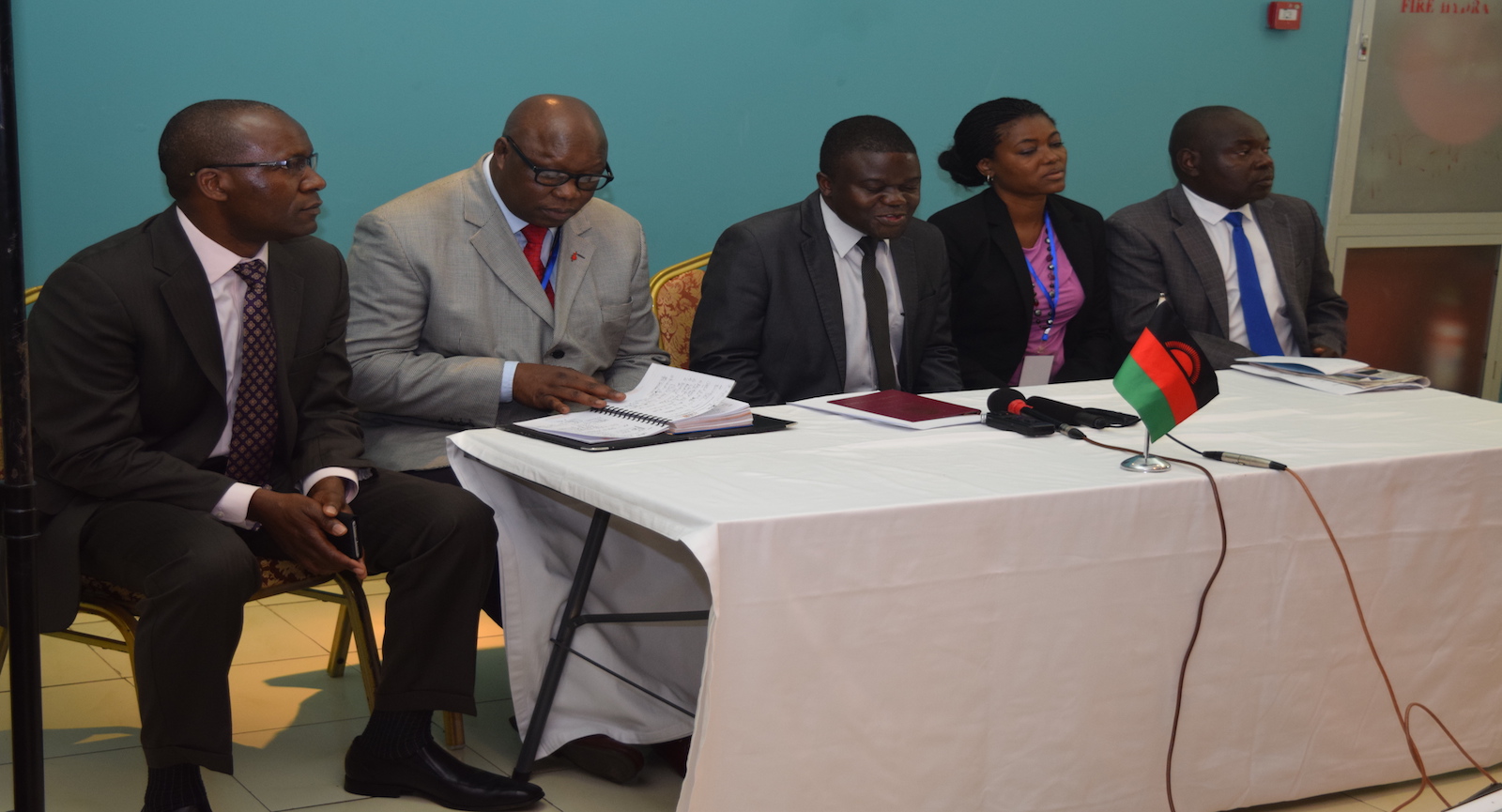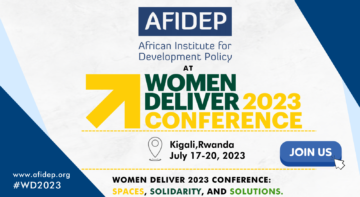News

The Government of Malawi is committed to increasing access to family planning services in order to address the existing unmet need for these services particularly among young people, who constitute the majority of the population. The Minister for Health, Hon. Dr. Peter Kumpalume, made this assurance today while presiding over the closing ceremony of the 2016 National Conference on Population and Development that has been going on this week at the Bingu International Convention Centre.
The Conference, which begun on 6 September 2016, brought together delegates from a range of sectors including among others: government departments, United Nations agencies, development partners, parliamentarians, traditional authorities, youth, faith leaders, media and the private sector. Its theme was: Empowering, Educating and Employing Youth to Harness the Demographic Dividend and Achieve Sustainable Development in Malawi.
Most deliberations were informed by a study Report that was launched at the start of the Conference titled: Harnessing the Demographic Dividend to Accelerate Socio-economic Transformation and Economic Development in Malawi. The Report is based on a study which sought to assess Malawi’s potential for harnessing the demographic dividend and the policy options that the country can consider in order to maximise its potential for earning a maximum demographic dividend. The study was undertaken with technical assistance from AFIDEP in partnership with UNFPA Malawi.
The Demographic Dividend is the economic benefit that arises from a significant increase in the ratio of working age adults relative to young dependents that results from a decline in birth rates and death rates.
The focus on family planning, a theme which dominated the Conference, was largely influenced by the fact that though family planning has had tremendous impact on reducing Malawi’s fertility rate, the country still experiences rapid population growth and a high child dependency burden.
The concept of the demographic dividend has gained acceptance by many governments in sub-Saharan Africa (SSA) in recent years because it focuses development planning towards taking advantage of the large youthful population whose huge potential it seeks to tap into in order to achieve economic transformation. For this to be possible however, governments need to simultaneously focus on five pillars of national development that are also referred to as the “wheels” of the demographic dividend. These are: family planning, economic reforms and job creation, health, education and good governance.
Whereas the four other “wheels” besides governance received considerable attention during the first two days of the Conference, it took a presentation this morning by Dr. Henry Chingaipe to delve into the role of governance in determining the success or failure of the demographic dividend model in Malawi.
His presentation focused on: The Role of governance and accountability in use of public resources and efficiency in delivery of public services. According to him, Malawi’s record on accountability in the use of public resources as well as enforcement of measures to curb resource wastage has been far from rosy in recent years.
Of even more concern is his observation that citizens appear to have become more tolerant of corrupt practices by leaders after the country became a multi-party democracy. “Governance systems must be accountable to citizens for a demographic dividend to be harnessed,” asserted Dr. Chingaipe. He went on to list three parameters that are the hallmark of good governance namely: political will, leadership and technical competence. In his view, there is room for improvement in all three parameters in Malawi if the country is to harness its potential demographic dividend. He therefore called upon citizens to become more vigilant in holding the government to account both at national and district council levels.
In what served to point participants towards what needs to happen after the Conference going into the future, AFIDEP’s Executive Director, Dr. Eliya Zulu’s presentation titled: Towards a roadmap for harnessing the demographic dividend in Malawi served to point a way forward. Whereas his presentation was not prescriptive, Dr. Zulu reiterated that in order to harness the demographic dividend, governments are not required to introduce any radical changes to development efforts, rather development needs to become more integrated.
He suggested that development planners need to “wear different lenses” and reassess the way education, family planning and health services services provision and economic planning is done. “For example, it is well and good to aim for education for all, however, we must ask ourselves about the quality of education we are offering our young people. If the skills we are imparting are not helping them to get employed, education is not serving its rightful purpose and we need to change it into a system the equips the youth with qualifications and skills that make them employable,” he said.
He expressed optimism though that sub-Saharan governments have become more receptive to the demographic dividend approach. He cited the example of Uganda where President Yoweri Museveni, a long term advocate for continued population growth in Africa, had changed his views about family planning after listening to presentations on the the demographic dividend concept. “Regional and international agencies including the African Union and the World Bank support the demographic dividend approach because they are convinced it can steer SSA countries towards socio-economic transformation, if the right policies to support it are put in place,” he observed. He also reminded participants that non-other that Malawi’s Head of State, HE Peter Mutharika, has become a champion of the demographic dividend.
The Conference ended with the adoption of a Communique that called for the establishment and equipping of a multi-disciplinary cross sectoral National Population Council; the formulation and operationalisation of a demographic dividend Report Action Plan for the 2017 African Summit; and the extensive dissemination of findings of the newly launched demographic dividend Report for Malawi.
Related Posts





